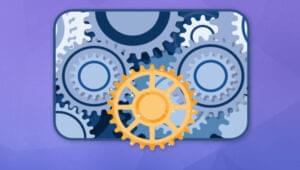Are you ready to supercharge your Node.js development experience? With the right set of tools, you can elevate your projects to new heights, streamline your workflow, and create powerful, high-performance applications. This comprehensive guide will introduce you to the top tools for Node.js development, provide tips on enhancing your workflow with the best tools for Node.js development, and offer resources to help you stay up to date with the latest best practices in the ever-evolving world of Node.js development. Let’s explore the essential tools for Node.js development and dive in!
Key Takeaways
-
Explore the key tools for Node.js development in 2024, including Express.js, Webpack and Mocha.js.
-
Learn about Visual Studio Code extensions, debugging tools and performance monitoring to enhance your workflow.
-
Gain insight into choosing the right toolset and staying up to date on best practices for successful Node.js projects.
Top Node.js Development Tools
Node.js has become an essential part of the software development landscape, acclaimed for its ability to create server-side applications using JavaScript. According to the Stack Overflow Developer Survey 2023, Node.js ranks second in popularity for web development, a testament to its influence and versatility. We’ll now delve into the top Node.js development tools designed to simplify your workflow, save time, and aid in building robust, efficient applications.
Some of the many development tools available are:
- Express.js
- Webpack
- Mocha.js
- Chai
- PM2
- Passport.js
- Babel
- Electrode.io
- Sinon.JS
These tools serve a variety of purposes, from web application frameworks and module bundlers to testing suites and authentication middleware. These fundamental Node.js tools, along with other essential JavaScript tools, empower you to concurrently develop applications on both the server and client sides, leveraging JavaScript to ensure a seamless development experience.
Whether you’re a seasoned Node.js developer or new to the world of JavaScript, having the right tools at your disposal can make all the difference. In the following subsections, we’ll examine in detail these top Node.js development tools, discussing their functionality, benefits, and their utilization in building powerful, efficient applications.
Express.js
Express.js is a widely-used web framework for Node.js, perfect for creating server-side applications and APIs. Combining Node.js and Express.js enables you to develop a comprehensive JS app, with Node.js managing the server-side component, while Express.js takes care of website application deployment.
Its popularity as a minimalist web framework makes it an ideal choice for building server-side applications and APIs, and the comprehensive documentation provided by the official Express.js website ensures you’ll have all the guidance you need.
Webpack
Webpack is a popular JavaScript module bundler, typically used for:
- bundling JavaScript files for use in a browser
- optimizing asset loading
- simplifying front-end development
- enhancing user experience
- reducing developer workload
To harness the power of Webpack, you can use its command-line interface to compile JavaScript files for browser applications, ensuring that your code is optimized for maximum performance. Check out our Webpack beginner’s guide.
Mocha
Mocha is a rapid and versatile testing suite for Node.js, providing support for unit and integration testing, test-driven development (TDD), and behavior-driven development (BDD). It allows you to run tests in both the console and the browser, making it suitable for various JS projects.
Mocha.js is compatible with a range of JavaScript frameworks, such as Chai, Sinon, and Should.js, ensuring that you have the flexibility to choose the right testing tools for your project. Check out our guide to Mocha and Chai.
Chai
Chai is a test-driven development (TDD) and behavior-driven development (BDD) assertion framework for Node.js, which can be used in conjunction with any testing framework, such as Mocha.js, for app development. Chai offers a variety of plugins, including chai-as-promised, chai-subset, and chai-things, giving you the flexibility to tailor your testing experience to your specific needs.
By utilizing Chai in your testing process, you can ensure that your Node.js applications are reliable, efficient, and free of errors.
PM2
PM2 is a Node.js-based framework and production process manager, featuring a built-in load balancer for Node.js applications. It allows you to run applications in cluster mode, spawning processes for multiple CPU cores simultaneously, and update applications with zero downtime through the “hot reload” option.
By integrating PM2 with platform-as-a-service (PaaS) providers, you can take advantage of features such as:
- cloud infrastructure
- networking
- storage
- operating system
- middleware
- runtime environment
- third-party API integration
In essence, PM2 is an excellent tool for streamlining process management for Node.js applications.
Passport.js
Passport.js is an authentication middleware for Node.js, streamlining user authentication by offering a huge number of authentication methods, including:
- username and password models
- login through Facebook
- login through Google
- login through Twitter
Passport’s flexibility and modularity allow for seamless integration into Express-based web applications, making it an invaluable tool for building secure, robust applications.
We have a great Passport tutorial here.
Babel
Babel is a JavaScript compiler that allows you to use the latest ECMAScript 2015+ features in your projects, while also compiling your code to be compatible with older browsers. Incorporating Babel into your development process facilitates writing modern JavaScript code that holds compatibility with all browsers, even older versions, thus guaranteeing the optimum user experience for your audience.
To get started with Babel, you can install the Babel command line interface (CLI) and run the babel src -d lib command to compile your source code from the src directory into the lib directory.
Check out our beginner’s guide to Babel.
Electrode.io
Electrode.io is an open-source application platform developed by Walmart Labs that facilitates the construction of large-scale, universal React/Node.js applications in an organized fashion. By providing best practices, standardized structure, and modern technologies, Electrode.io allows you to create powerful, scalable applications with ease.
Some of the features offered by Electrode.io include Electrode Explorer and Electrify, which help to streamline your development process and ensure that your applications are built to the highest standards.
Sinon.JS
Sinon.JS is a cross-browser, standalone testing framework that supports stubs, spies, and mocks for JavaScript, compatible with any testing framework. By simplifying the testing process and providing the ability to replace more challenging aspects of tests, Sinon.JS enables you to create robust, efficient applications with confidence.
Whether you’re working on a small project or a large-scale application, Sinon.JS is an invaluable tool for ensuring the quality and reliability of your code.
Enhancing Your Node.js Workflow
Optimizing your Node.js workflow is crucial for efficient and effective development. By utilizing the right tools and techniques, you can streamline your development process, reduce the time it takes to complete tasks, and ensure that your code is optimized for performance.
In the following section, we’ll examine Visual Studio Code extensions, debugging tools, and performance monitoring tools, all designed to optimize your Node.js workflow and aid in the creation of superior applications within an open source runtime environment.
Visual Studio Code Extensions
Visual Studio Code, a popular code editor for Node.js developers, offers a wide range of extensions that can help you streamline your development process and improve the quality of your code. Some of the most beneficial extensions for Node.js development include:
- npm Intellisense
- ESLint
- the Prettier code formatter
- GitLens: Git supercharged
- JavaScript (ES6) code snippets
All of these extensions are available at the official Visual Studio Code Marketplace. Inclusion of these extensions into your development workflow can save time, reduce errors, and create more maintainable, robust applications.
Want to get the most out of Visual Studio Code? Check out Visual Studio Code: End-to-End Editing and Debugging Tools for Web Developers on SitePoint Premium.
Debugging Tools
Debugging tools are essential for identifying and resolving issues in your Node.js applications. Some of the most popular debugging tools for Node.js include Node Inspector, Stackman, and Theseus. By incorporating these tools into your development process, you can quickly identify and resolve errors, ensuring that your applications are reliable and perform at their best.
A debugging tool not only helps you gain a better understanding of your code but also enables you to pinpoint areas for improvement and optimization.
Performance Monitoring Tools
Performance monitoring tools can help you optimize and improve the performance of your Node.js applications by providing valuable insights into response times, memory usage, and other metrics. Tools like Appmetrics, PM2, and Prometheus can be employed to detect and resolve performance issues in your applications, ensuring they run smoothly and efficiently.
Incorporating these tools into your development process enables you to develop high-performance applications, thereby ensuring an excellent user experience.
Node.js Frameworks for Different Use Cases
Node.js offers a wide range of framework options for different use cases, each with its unique benefits and features.
In the sections below, we’ll delve into three popular frameworks for Node.js development: Koa.js, Socket.io, and Keystone.js. These frameworks cater to specific needs and requirements, providing you with the tools and resources to create powerful, efficient applications tailored to your project’s goals.
Koa.js
Koa.js is an open-source, lightweight web framework for Node.js that focuses on providing a minimalistic and flexible approach to developing web applications and APIs.
Key features of Koa.js include:
- middleware support
- async/await support
- error handling
- context-based request and response objects
- extensibility through plugins
With comprehensive documentation and a wealth of examples available on the official Koa.js website, developers can quickly learn how to build JS apps and APIs using this powerful framework.
Koa.js is suitable for constructing various types of applications, including blogs, content management systems, and ecommerce platforms.
Socket.io
Socket.io is a powerful library for real-time web applications, enabling event-driven, bi-directional communication between web clients and servers. Used by popular products like Slack, Trello, and GitHub, Socket.io is renowned for its speed, reliability, and ease of use.
Keystone.js
Keystone.js is an open-source web framework for building websites, web apps, and APIs on Node.js, featuring content management system (CMS) functionality. This framework allows you to create scalable, robust applications with ease, thanks to its auto-generated user interface for managing your application, simple routing, and data encryption.
With a strong GraphQL API and a user-friendly interface, Keystone.js is an excellent choice for developing web applications and APIs that are both functional and secure.
Learning Resources and Tutorials
As a developer, staying abreast of the latest best practices, trends, and technologies in the continuously evolving world of Node.js development is vital. To help you stay ahead of the curve, we’ve compiled a list of learning resources and tutorials that will provide you with the knowledge and skills necessary to become a proficient Node.js developer.
Official Node.js Documentation
The official Node.js documentation is a comprehensive resource for understanding and mastering Node.js development. This extensive guide covers everything from tutorials and API references to guides on specific topics, providing you with the tools and information you need to excel in Node.js development.
By consulting the official Node.js documentation, you can stay up to date with the latest best practices and industry trends, ensuring that your applications are built to the highest standards.
Our Favorite Book, Node.js: Novice to Ninja
We’re biased, of course, but we really do think Craig Buckler’s book Node.js: Novice to Ninja is a fantstic tutorial for beginners wanting to get started with Node. It’s available on SitePoint Premium, and in bookstores and ebook retailers worldwide.
Online Courses and Workshops
Online courses and workshops can be an invaluable resource for learning Node.js concepts and best practices, helping you enhance your skills and knowledge in the field (there are several on SitePoint Premium). By participating in these educational programs, you’ll gain access to expert instruction, practical examples, and hands-on exercises designed to help you improve your Node.js development skills.
Summary
In conclusion, the world of Node.js development offers a wealth of tools, frameworks, and resources to help you create powerful, efficient applications. By choosing the right tools, you can streamline your development process, improve the quality of your code, and create robust, high-performance applications.
FAQs on Node.js Tools
Node.js is a JavaScript runtime built on Chrome’s V8 JavaScript engine. It allows developers to run JavaScript server-side, enabling the creation of dynamic and scalable web applications.
Which IDE is best suitable for Node development?
For Node development, popular and recommended IDEs include Microsoft Visual Studio Code, Cloud 9, IntelliJ IDEA, Sublime Text, Aptana, Komodo IDE, WebStorm, and Koding.
How can I improve my Node.js workflow?
Optimize your Node.js workflow by using Visual Studio Code extensions, debugging tools, and performance monitoring tools.
What are some Node.js frameworks for different use cases?
Koa.js, Socket.io, and Keystone.js are popular Node.js frameworks for different use cases, providing developers with powerful tools to build effective web applications.
Node.js offers various tools, including npm (Node Package Manager), Express.js (a web application framework), and tools for debugging and testing like Node Inspector and Mocha.
Node.js is often paired with databases like MongoDB (a NoSQL database), MySQL, and PostgreSQL. Frameworks like Mongoose make it easier to interact with databases in a Node.js environment.
Mocha is a widely used JavaScript testing framework for Node.js. It provides a simple and flexible structure for writing test cases and supports asynchronous testing.
Yes, tools like ESLint help developers maintain consistent coding styles and catch potential errors. They enforce coding standards and improve code quality.
 Dianne Pena
Dianne PenaDianne is SitePoint's newsletter editor. She especiallly loves learning about JavaScript, CSS and frontend technologies.









